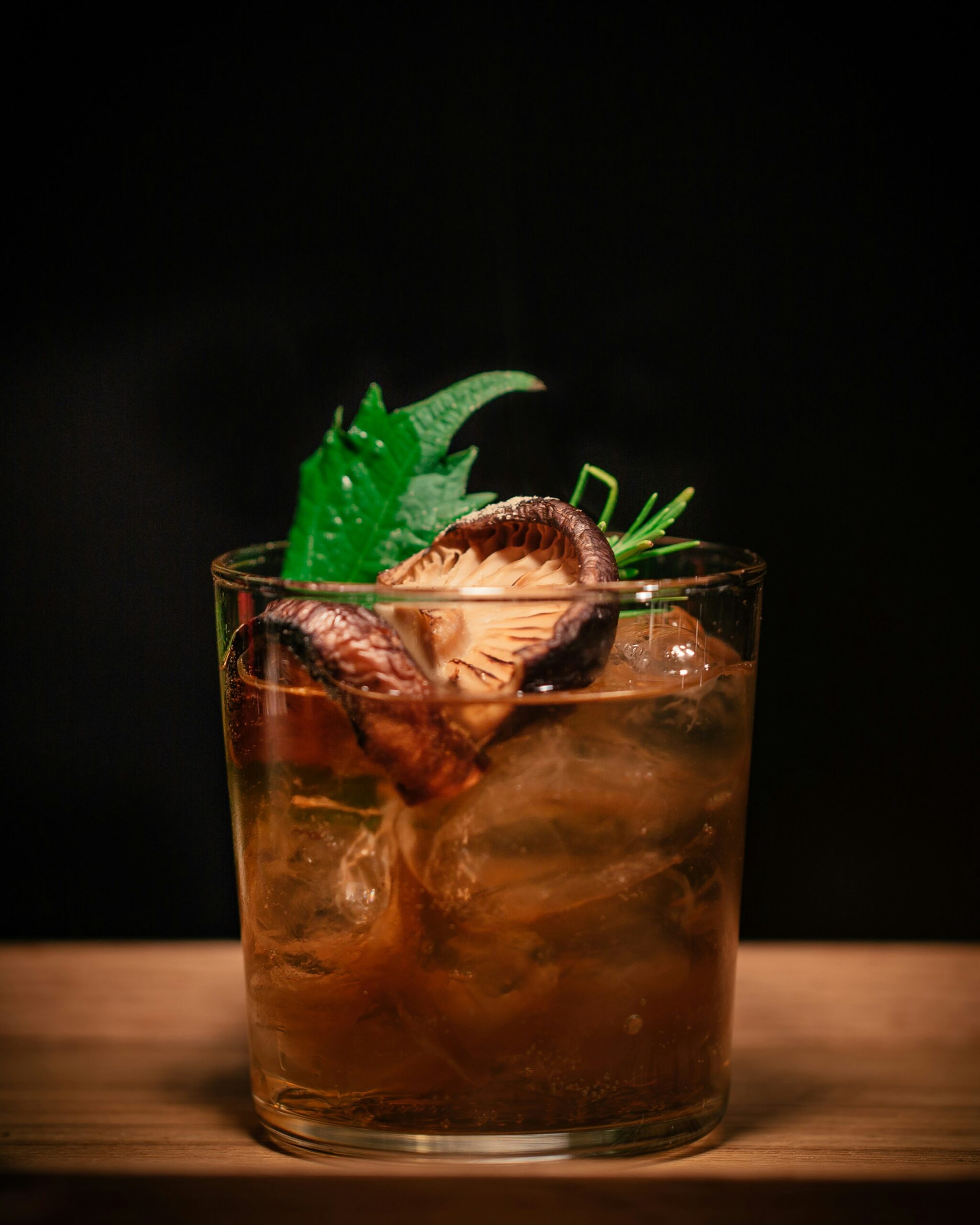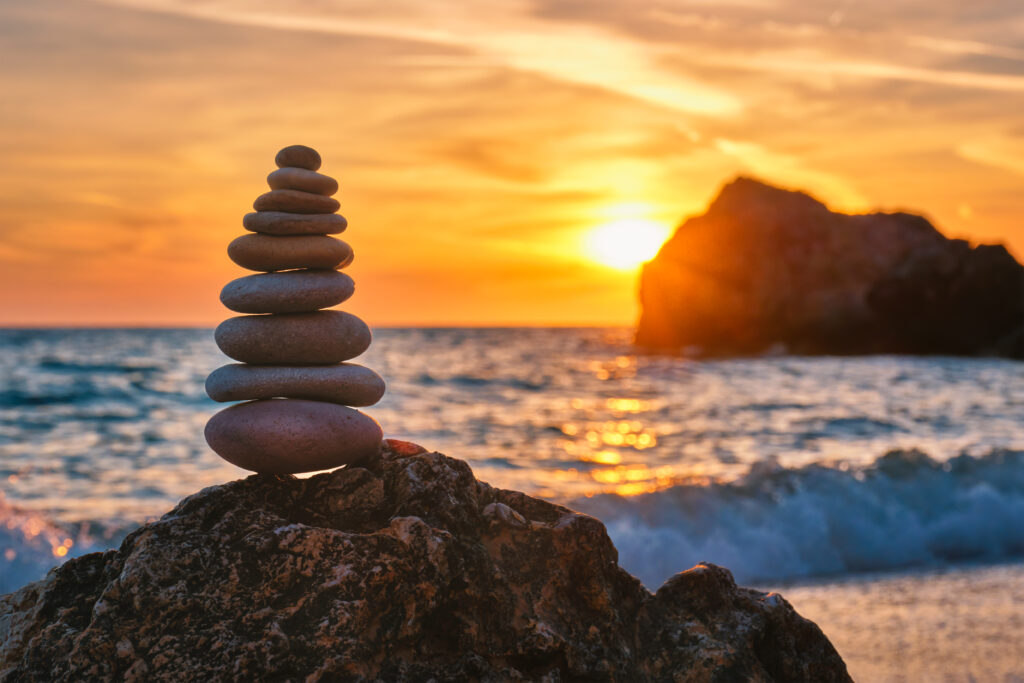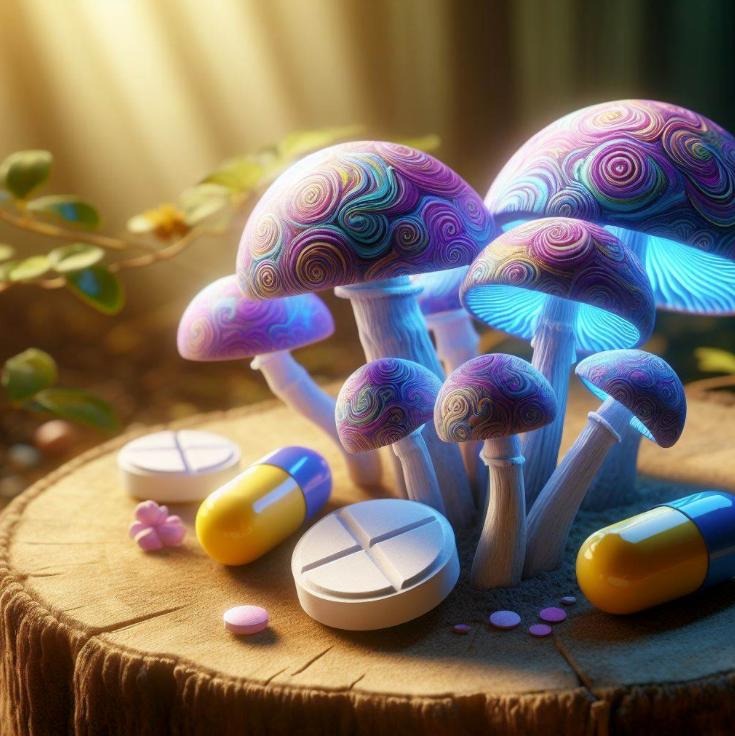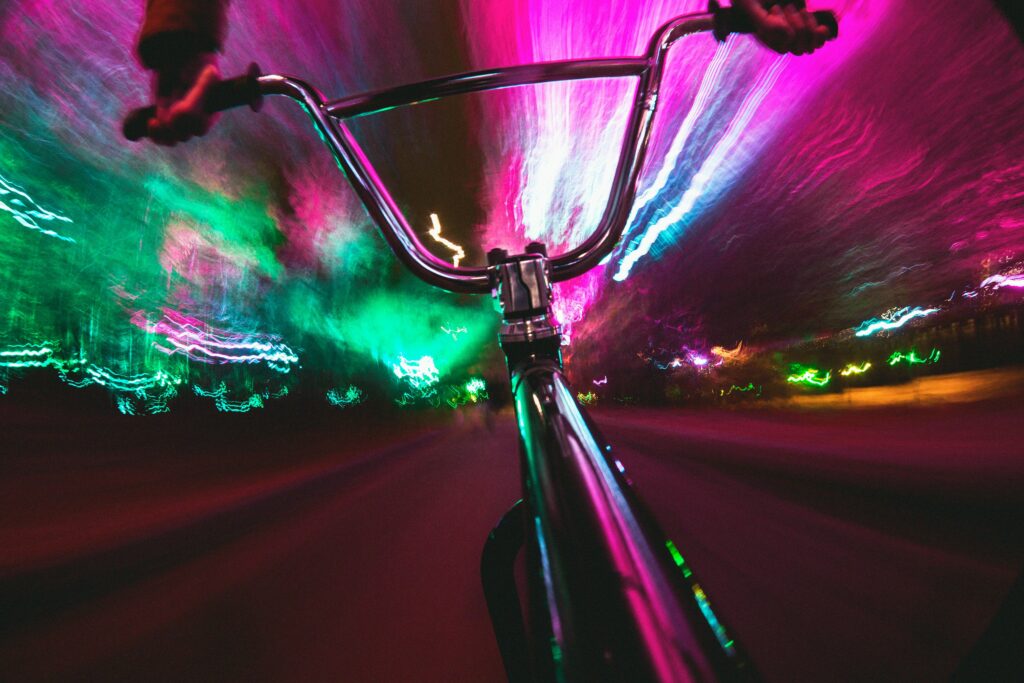The relationship between alcohol and psilocybin (the active compound in “magic mushrooms”) is complex and multifaceted. While both substances have unique effects on the mind and body, their interactions can alter the impact of a psilocybin experience in ways that can be unpredictable and even detrimental.
In this blog post, we’ll explore the effects of combining alcohol and psilocybin, the potential risks involved, and why understanding these interactions is crucial for anyone interested in psilocybin therapy or recreational use.
The Science of Alcohol and Psilocybin
Both alcohol and psilocybin influence the brain’s neurotransmitter systems, but they do so in very different ways. Alcohol is a depressant that primarily affects the GABA (gamma-aminobutyric acid) receptors, leading to feelings of relaxation, lowered inhibitions, and impaired cognitive function. Psilocybin, on the other hand, primarily interacts with serotonin receptors, particularly the 5-HT2A receptor, which is responsible for its hallucinogenic and consciousness-altering effects.
When taken together, these substances can create competing effects that may influence the overall experience:
- Dampening Psilocybin’s Potency: Alcohol’s depressant effects can reduce the intensity of a psilocybin experience, dampening the psychoactive and emotional responses. This can make it more challenging for individuals to experience the full therapeutic or introspective benefits of psilocybin, which are often the result of heightened emotional sensitivity and altered perception.
- Increased Risk of Nausea and Discomfort: Both alcohol and psilocybin can cause nausea and gastrointestinal discomfort on their own. When combined, these effects may be exacerbated, leading to increased nausea, vomiting, and overall physical discomfort during the trip.
- Impairment of Cognitive and Motor Functions: Psilocybin on its own tends to preserve cognitive clarity, allowing users to explore altered states of consciousness with a degree of mental acuity. Alcohol, however, impairs motor skills and cognitive functions. Combining the two can lead to increased disorientation, confusion, and impaired judgment.
Potential Risks of Combining Alcohol and Psilocybin
While some individuals may choose to use alcohol to alleviate anxiety or nervousness before a psilocybin experience, this approach can backfire in several ways:
- Heightened Anxiety and Negative Emotional Responses: Alcohol can lower inhibitions, which might initially seem like a way to reduce anxiety. However, as the psilocybin takes effect, the user may find themselves in an emotionally vulnerable state without the cognitive stability needed to navigate it. This could lead to increased anxiety, paranoia, or even panic.
- Blunting the Therapeutic Benefits: The therapeutic potential of psilocybin lies in its ability to facilitate deep emotional insights and reconnections with repressed memories or emotions. Alcohol’s numbing effects can suppress this process, preventing users from fully accessing the healing potential of psilocybin.
Considerations for Safe Use
Given these potential risks and interactions, it’s important for individuals who are exploring psilocybin, whether for therapeutic or recreational purposes, to consider the following:
- Avoid Mixing Substances: To fully experience the potential benefits of psilocybin, it’s generally recommended to avoid consuming alcohol before or during a psilocybin experience. This allows the user to have a clearer, more introspective journey.
- Monitor Your Setting and Support System: If alcohol has already been consumed, it’s critical to ensure that the setting is safe and that a sober sitter or guide is present. This can help mitigate the risks of disorientation or injury.
- Stay Hydrated and Nourished: Alcohol dehydrates the body, which can intensify the physical discomfort of a psilocybin trip. Staying hydrated and having light, nutritious foods on hand can help ease some of the physical side effects.
Conclusion
While combining alcohol and psilocybin may seem like a way to “soften” a psychedelic experience or calm pre-trip nerves, it often complicates the journey in ways that can diminish the positive effects or lead to negative outcomes. Whether you’re exploring psilocybin for therapeutic purposes or personal growth, approaching it with respect and a clear mind is essential for maximizing its potential benefits.
By understanding how alcohol impacts the effects of psilocybin, individuals can make more informed choices about how to approach their psychedelic experiences, ensuring they remain safe, meaningful, and transformative.
This exploration of alcohol and psilocybin interactions serves as a guide for those curious about or actively engaged in the world of psychedelics. If you have any questions or want to share your own experiences, feel free to join our discussion in the Sacred Hart community!




